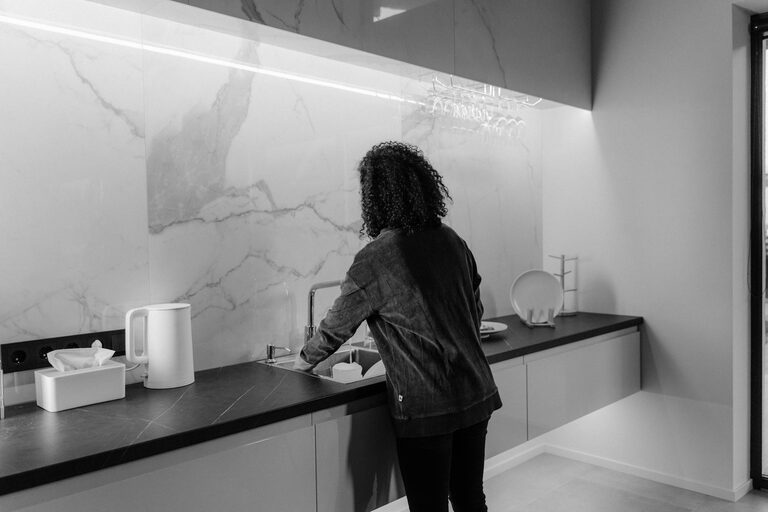Making dinner is often the highlight of the day, but the cleanup afterward can feel like a chore. If you’re looking for ways to simplify this part of your routine, you’re in the right place. With a few easy adjustments and smart habits, you can reduce your time spent scrubbing pots and clearing counters. Here are practical and effective ideas to make dinner cleanup easier and more manageable.
Prep for Easy Cleanup Before Cooking
One of the best ways to reduce cleanup time is to plan ahead.
Organize Ingredients in Advance
Gather all your ingredients and have them measured and ready before you start cooking. This prevents multiple trips around the kitchen and minimizes spills or forgotten items on the counter.
Use Minimal Cookware
Try to limit the number of pots, pans, and utensils you use. For example, consider one-pot meals or sheet pan dinners that require just a single pan. This cuts down dramatically on the dishes you’ll have to wash later.
Line Baking Trays and Pans
When roasting or baking, use parchment paper or aluminum foil to line your trays. These liners catch drips and crumbs, so you don’t have to scrub the pan afterward. Just toss the liner in the trash once you’re done.
Stay Organized While Cooking
Keeping the workspace tidy as you cook helps prevent a big mess later on.
Clean as You Go
Make it a habit to wash or rinse utensils, cutting boards, and bowls right after using them. This way, fewer dishes pile up, and you avoid a mountain of dirty items at the end.
Use a Compost or Trash Bowl
Place a bowl on your counter to collect food scraps as you prep. You won’t need to make extra trips to the bin, and your workspace stays cleaner.
Keep Your Sink Clear
Try not to let dirty dishes accumulate in the sink. If possible, rinse plates and pans immediately after use and either load them into the dishwasher or stack them neatly to wash.
After Dinner Cleanup Tips
Once the meal is over, slowing down the cleanup doesn’t have to be daunting.
Soak Pots and Pans Immediately
For pans with stuck-on food, fill them with hot water and dish soap right after dinner. Soaking loosens grime, making it much easier to scrub later.
Wipe Down Surfaces Right Away
Use a damp cloth or cleaning wipe to quickly clear crumbs and spills from countertops, the table, and stove. It’s harder to clean dried stains, so tackling messes immediately can save time.
Use a Dishwasher Efficiently
If you have a dishwasher, load it strategically. Place knives and utensils with blades down, arrange plates and bowls securely, and avoid overcrowding. Run it only when full to save energy.
Put Leftovers Away Promptly
Transfer leftovers to containers and refrigerate or freeze them quickly. This prevents food from piling up and keeps your kitchen smelling fresh.
Tools and Products That Help Speed Up Cleanup
Having the right tools can make a big difference.
Silicone Spatulas and Non-Scratch Scrubbers
These tools make scrubbing easier on your cookware and prevent damage to non-stick surfaces.
Multipurpose Cleaning Sprays
Keep a biodegradable, all-purpose cleaner handy for wiping counters and tables. Spraying before wiping helps break down grease and food residues.
Disposable or Reusable Dish Cloths
Use reusable cloths for daily cleaning but consider disposable wipes for quick spot cleaning without worrying about washing them.
Establish a Routine to Keep Cleanup Manageable
A consistent cleanup routine can prevent kitchen messes from building up.
Assign Cleanup Roles
If you live with family or roommates, split cleanup tasks after dinner. One person can clear and put away dishes, while another wipes down surfaces and sweeps the floor.
Set a Timer
Make cleanup a game by setting a timer for 10-15 minutes after dinner. Challenge yourself or others to finish the job within that time frame.
Plan Weekly Deep Cleans
Beyond daily cleanup, schedule a weekly session to clean the oven, fridge, and cupboards. This keeps your kitchen fresh and prevents messes from becoming overwhelming.
Bonus Tips for Special Occasions
Dinner parties or holiday meals usually mean more cooking and more cleanup. Here’s how to lighten that load:
– Serve Buffet-Style: Set up dishes for guests to serve themselves, which often means fewer serving plates to wash.
– Use Disposable Tableware: Consider eco-friendly disposable plates and cups to reduce dishwashing after large gatherings.
– Enlist Helpers: Don’t hesitate to ask family or friends to pitch in with cleanup—they’ll likely appreciate the opportunity to help.
—
Dinner cleanup doesn’t have to be the dreaded part of your evening. By preparing in advance, cleaning proactively, and using smart tools, you can make this task simpler, quicker, and even enjoyable. Try integrating these ideas into your routine and enjoy more time relaxing after meals. Happy cooking—and cleaning!

